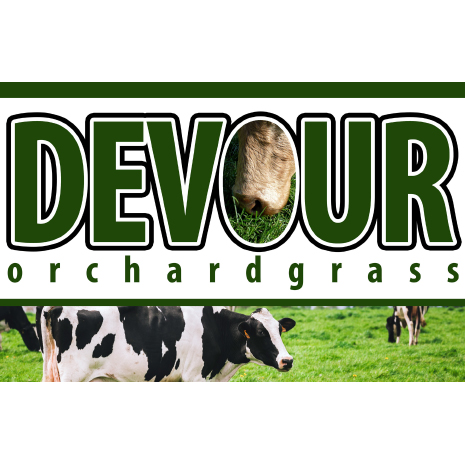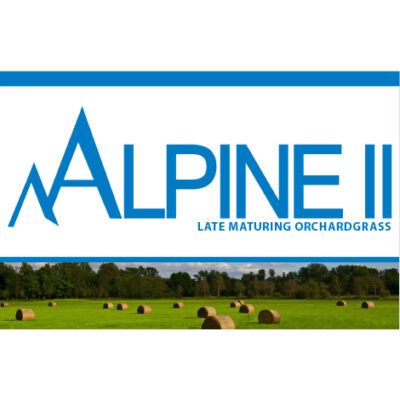Devour Grazing Type Orchard Grass
GRAZE AWAY ON DEVOUR
Devour is the new leader of the class of grazing-type orchardgrasses. Devour was bred to withstand the rigors of intensive grazing systems which can destroy lesser varieties. The lower-growing pattern of Devour (picture at right) enables it to persist under extended periods of hoof traffic. Devour is quick to establish and canopies quickly after harvesting, outcompeting weeds for higher-quality, higher-yielding pasture for your livestock. Devour is a late-maturing variety, with great disease resistance that can be used in tandem with clovers, alfalfa, or like-maturity cool-season grasses.
Description
- Highly persistent–withstands grazing pressure
- Very palatable
- Late maturing–can be seeded wit clover or alfalfa
- Exceptional yield
- Good seedling vigor
ESTABLISHMENT
Plant at a rate of 15-20lbs./ac. Proper seed bed preparation is essential. A soil sample will identify necessary inputs to achieve proper pH, P, K and other macronutrient levels (extension service or agronomy supplier can advise). Use of a non-selective herbicide will reduce weed competition; spray per label recommendation when crop is mature enough. No-till seeding is generally very effective. Avoid planting too deep. Irrigation to supplement seasonal moisture, if available, will insure best establishment and fill-in. Plants should be firmly established before grazing is allowed. Particularly in the first year, overgrazing can seriously reduce stand longevity.
MANAGEMENT
Proper management begins with correct fertilization. Soil sampling is a great tool to get baseline soil fertility inventory, especially on pH, organic matter, phosphorus, potassium and other macro and micro elements to best determine application rates based on soil maintenance and nutrient removal. Correct nitrogen application rates should consider organic matter, yield goals, stocking rate, etc. Your local agronomy input supplier or extension service can provide valuable regional information. Control broadleaf weeds as necessary.



